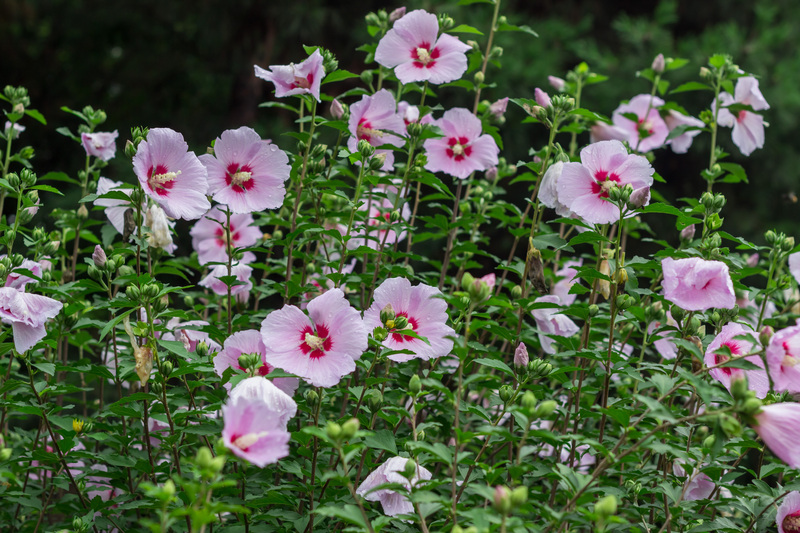Sustainable Gardening with Recycled Organic Matter
Posted on 13/08/2025
Sustainable Gardening with Recycled Organic Matter: A Comprehensive Guide
In a world increasingly concerned with reducing waste and conserving resources, sustainable gardening practices are gaining ground among environmentally conscious gardeners. At the heart of these methods lies an age-old principle: recycling organic matter to nourish the soil and support plant growth. This approach, often referred to as regenerative gardening or eco-friendly gardening, plays a key role in fostering healthier plants while minimizing our ecological footprint.
What is Sustainable Gardening?
Sustainable gardening is a philosophy and practice focused on creating and maintaining gardens that work in harmony with the environment. It involves conserving water, minimizing the use of harmful chemicals, and most importantly, returning organic materials back to the ecosystem. By doing so, gardeners help to enrich the soil naturally, promote biodiversity, and support a thriving ecosystem right in their backyard.
The Importance of Recycled Organic Matter
Recycled organic matter refers to natural substances such as food scraps, leaves, grass clippings, and plant trimmings that can be converted into nutrient-rich compost or mulch. Rather than sending these materials to a landfill, where they decompose anaerobically and produce greenhouse gases, sustainable gardeners put them to good use in the garden, closing the nutrient loop and creating a zero-waste garden.
- Enhances soil fertility
- Improves soil structure and drainage
- Boosts microbial and insect activity
- Reduces reliance on synthetic fertilizers
- Minimizes garden waste sent to landfill
- Helps retain moisture, reducing irrigation needs

How to Recycle Organic Matter in the Garden
Home Composting
Composting is the process of collecting kitchen scraps and garden waste, allowing them to decompose under controlled conditions, and using the resulting nutrient-dense humus to enrich the soil. It's the cornerstone of sustainable gardening with recycled organic matter.
- Start with a compost pile or bin in a shaded area of your garden.
- Add 'greens' (nitrogen-rich materials such as fruit/veggie scraps, coffee grounds, grass clippings) and 'browns' (carbon-rich elements like dried leaves, cardboard, sawdust).
- Keep the pile moist but not soggy to encourage microbial activity.
- Turn or mix the pile every few weeks for aeration and even decomposition.
- Within a few months, you'll have dark, crumbly compost ready to boost your garden beds.
Not only does composting help recycle organic resources, but it also reduces methane emissions compared to dumping food waste in landfills--a win-win for your garden and the planet.
Sheet Mulching (Lasagna Gardening)
Sheet mulching, often called lasagna gardening, is a simple way to recycle organic matter directly onto your garden beds. By layering cardboard, newspaper, leaves, and other garden debris, you suppress weeds, conserve moisture, and create rich soil as the layers naturally compost in place.
- Lay down sheets of cardboard or non-glossy paper directly on soil or existing vegetation.
- Add alternating layers of moist "green" material (fresh plant clippings, kitchen scraps) and dry "brown" material (straw, leaves).
- Water each layer to facilitate decomposition.
- Finish with a layer of finished compost or mulch.
Within a few seasons, you'll have a lush, fertile bed teeming with life, ideal for planting fruits, vegetables, and flowers.
Vermicomposting (Worm Composting)
Vermicomposting is an eco-friendly way to recycle organic waste using red wiggler worms. These fantastic creatures eat food scraps and cardboard, producing worm castings--a superb organic fertilizer.
Start by setting up a worm bin in a cool, shaded spot, add bedding (like shredded newspaper and leaves), and gradually introduce kitchen scraps. Keep the bedding moist and avoid adding meat, dairy, or oily foods. Worm composting is perfect for small spaces and apartments as well.
Types of Organic Matter to Recycle for Sustainable Gardening
A wide variety of organic materials can be repurposed for nutrient cycling in the garden. Here are some common types:
- Vegetable and fruit scraps: All peelings and leftovers except those from citrus in excess.
- Coffee grounds and tea bags: Add valuable nitrogen and trace minerals.
- Eggshells: Crushed shells provide calcium for tomatoes, peppers, and other plants.
- Yard waste: Fallen leaves, grass clippings, and plant prunings bulk up the soil with organic matter and provide habitats for worms and beneficial insects.
- Wood chips and sawdust: Use for mulch or carbon "brown" layers in compost, avoiding chemically treated wood.
- Pulled weeds (before they set seed): Add biodiversity to the compost heap.
- Paper and cardboard: Shredded or torn, excellent for moisture retention and carbon content.
Best Practices for Recycling Organic Matter in the Garden
Balancing Carbon and Nitrogen
A key to effective composting is maintaining a balance of carbon-rich ("brown") and nitrogen-rich ("green") materials. A ratio of approximately 2:1 browns to greens helps ensure that decomposition happens efficiently and without foul odors.
- Too many greens = smelly, soggy compost pile
- Too many browns = slow decomposition
Adjust as needed by adding more dried leaves or shredded cardboard if your pile smells unpleasant, or more kitchen scraps if it's too dry and inactive.
Composting Safety Tips
- Avoid composting meat, dairy, oils, and diseased plants to prevent pests and pathogens.
- Turn the compost regularly for aeration and to speed up the breakdown process.
- Keep compost covered during heavy rain to prevent leaching of nutrients.
- Ensure your compost reaches temperatures of 140?F (60?C) to kill weed seeds and pathogens.
The Environmental Benefits of Using Recycled Organic Matter
Sustainable gardening techniques that utilize recycled organic matter benefit not only the immediate garden ecosystem but also have far-reaching positive effects for the environment:
- Reduces landfill waste: Organic matter takes up significant landfill space. Composting repurposes this valuable resource.
- Lowers greenhouse gas emissions: Decomposing organics in landfills produce potent methane gas. Composting eliminates this problem.
- Builds healthier soil: Organic matter increases soil carbon, improves texture, and boosts water- and nutrient-holding capacity.
- Increases biodiversity: Healthy soils support a diverse community of microbes, insects, and wildlife, creating a balanced ecosystem.
- Reduces need for chemical inputs: Naturally fertile soils require less synthetic fertilizer and fewer pesticides, protecting waterways and beneficial species.
Practical Ways to Integrate Recycled Organic Matter in Your Garden
There are several approaches to incorporating recycled organic materials into your gardening routine:
- Top-dress garden beds with finished compost every season to replenish nutrients.
- Apply mulch regularly using grass clippings, leaves, or straw to suppress weeds and maintain soil moisture.
- Amend planting holes with a mixture of compost and native soil for new perennials, trees, and shrubs.
- Make "compost tea" by steeping mature compost in water, then using the liquid as a soil drench or foliar spray to promote healthy plant growth.
- Encourage natural decomposition by leaving autumn leaves in out-of-the-way garden areas as wildlife habitat and slow-release fertilizer.
Urban and Small-Space Composting Solutions
Not everyone has large yards or gardens, but virtually anyone can implement sustainable gardening with recycled organic matter:
- Indoor compost bins are available in compact, odor-free designs.
- Countertop scrap buckets with charcoal filters make it easy to save kitchen waste for community composting.
- Community gardens and local programs often provide drop-off points for compostable materials.
- Balcony gardeners can use worm bins or bokashi systems for food waste recycling.

Frequently Asked Questions About Sustainable Gardening with Recycled Organic Matter
Can I compost weeds or invasive plants?
Yes, but with caution. Make sure weeds haven't gone to seed, and avoid composting invasive species that can regrow from roots or stems unless your compost gets hot enough to kill them.
Are compostable bags safe for garden compost?
Some compostable bags break down in industrial composting facilities but may not fully degrade in home bins. Check for home-compostable certification and test small amounts before regular use.
Does composting attract pests?
If managed properly, a compost pile won't attract rodents or other pests. Avoid meats, oils, and dairy, bury food scraps under brown material, and maintain proper moisture and aeration.
How long does compost take to mature?
With regular turning and a balanced mix of greens and browns, compost can be ready in 2-6 months. Colder climates or bins turned less often may take up to a year.
Conclusion: Growing Greener with Recycled Organic Matter
Sustainable gardening with recycled organic matter is more than an eco-friendly trend--it's a fundamental way to garden thoughtfully, regenerate soil, and nurture the planet for years to come. By embracing this cycle of renewal, gardeners at every level can transform kitchen and yard waste into a valuable resource, reduce their environmental impact, and cultivate a thriving, resilient landscape.
Whether you have a sprawling backyard or a modest balcony, incorporating recycled organic matter into your gardening routine is achievable, affordable, and profoundly rewarding. Embrace composting, mulching, and smart nutrient management, and watch as both your garden and local ecosystem flourish--naturally.
Ready to start your own sustainable journey? Set up a compost bin, save those kitchen scraps, and let recycled organic matter work its magic in your garden!



